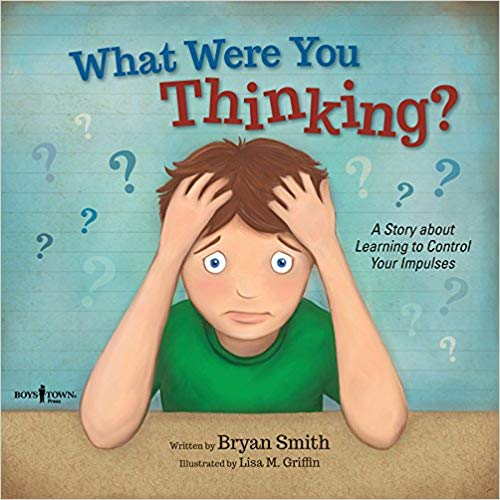Bryan Smith – What Were You Thinking? Audiobook
Bryan Smith – What Were You Thinking? Audiobook

What Were You Thinking? Audiobook Download
To help my 6 year old son recognize the topics he has difficulty with or stop him struggling because of ADHD, I read it to him. Knowing what you need to do is the first step towards making changes. We can hopefully avoid future disappointments as well as dissatisfactions in our children by being aware. It’s easier to make them responsible, respectful and accountable at a young age than to break bad habits later on in life. These are my thoughts. book This is one of many publications we look at as “self-help” typea publications. Every evening I choose 1 publication to add to my mix. This depends on what I’m trying to make him more aware of and how I can help him deal with the points he dealt. This is a useful list. What Were You Thinking? Audiobook Free. I love it when someone reviews more books on these topics. I’m always searching for more! This book was purchased to help my grandson get a better understanding of the world. He has enjoyed it many times, and enjoys looking at “Braden”‘s components. It is a wonderful publication for kids. If they do have impulse issues they may relate to Braden. But if not, they might be able see other children who do. It’s an interesting and useful story. Students with AD/HD have to be aware of their disabilities and accept them. Parents are crucial in helping children to understand and manage their handicaps. You should recommend these resources to your friends as well to your child’s teachers.
These are just a few of the many outstanding books for teenagers and children with AD/HD. Parents should review the guide with their children and have a conversation.What Were You Believing? By Bryan Smith Lisa M. Lion also addresses the normal minutes of a child’s day. Parents and educators will confirm that the answer to the title inquiry was not that the child assumed in any way. They were acting on impulse. Or, they believed that their behaviours were unlikely to yield the expected result.
This publication helps children realize that the best choice might not be to do what comes first. It might even help them achieve their goal in the wrong way. It also illustrates how children expect things to be funny, even though it can cause other people, like teachers, parents, coaches, or moms and dads, to be annoyed instead of excited. Sometimes, the “price”, of their laughter is more than the temporary thrill of any other interest.
These images encourage exploration of the bookBraden’s suggestions of amusing are not always in line with his classmates’. Discussions can ensue about the diversity of reactions among a classroom of children.
What Were You Assuming? This simple 4 step process is designed to assist children in expressing their feelings and ensuring that they get the outcome they want. This section includes tips for parents and educators that will help you teach your children how to control their impulses. Can likewise open conversation concerning intents & just how wit doesn’t decrease the discomfort of painful remarks/behavior.
AQ Lens: Children who have experienced trauma, pain, or loss may have low impulse control and high distractibility. They might also have had insufficient or negative behavior training. They may also need to find better ways of learning, and possibly unlearn bad habits.
This publication is another tool that can be used to assist children in improving their emotional intelligence and expanding their choices. Family members can help their children identify the gaps between what they want and the actual results and teach them how to choose better approaches. Bryan Smith – What Were You Thinking? Audio Book Download. I love this publication! I bought this publication to give to my spontaneous very first child. We advised him to assume and quit before he acts. The publication was a great help.-judgmental/non-It is preachy. It was a story that he enjoyed, and he understood the points. The images are wonderful and I enjoyed the web page with stop, assume, decide or pick ideas. This was copied to my college folder. His teacher also kept a copy on his desk. He has actually read the guide to me a few times, and we have actually shared it a lot.
